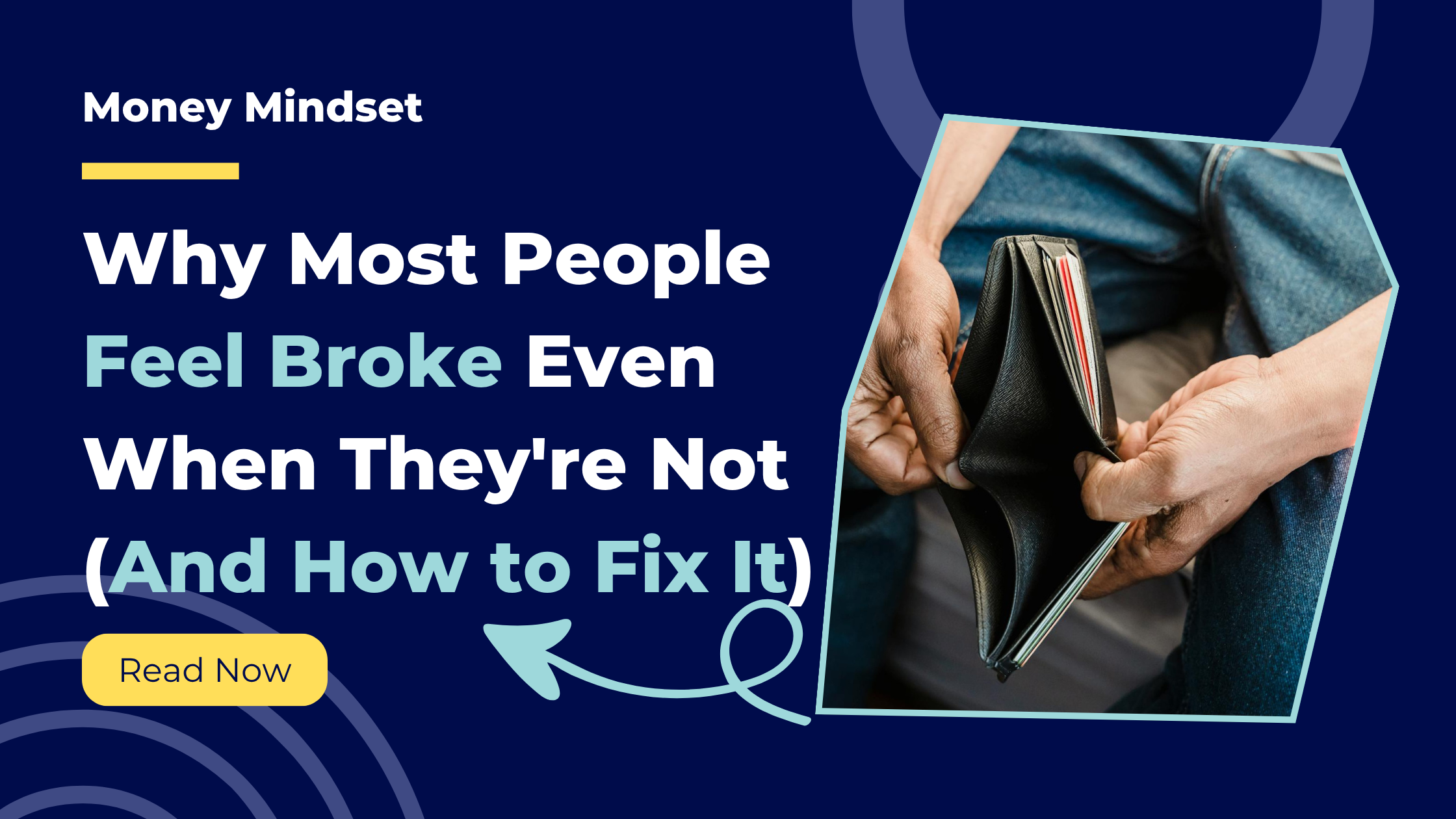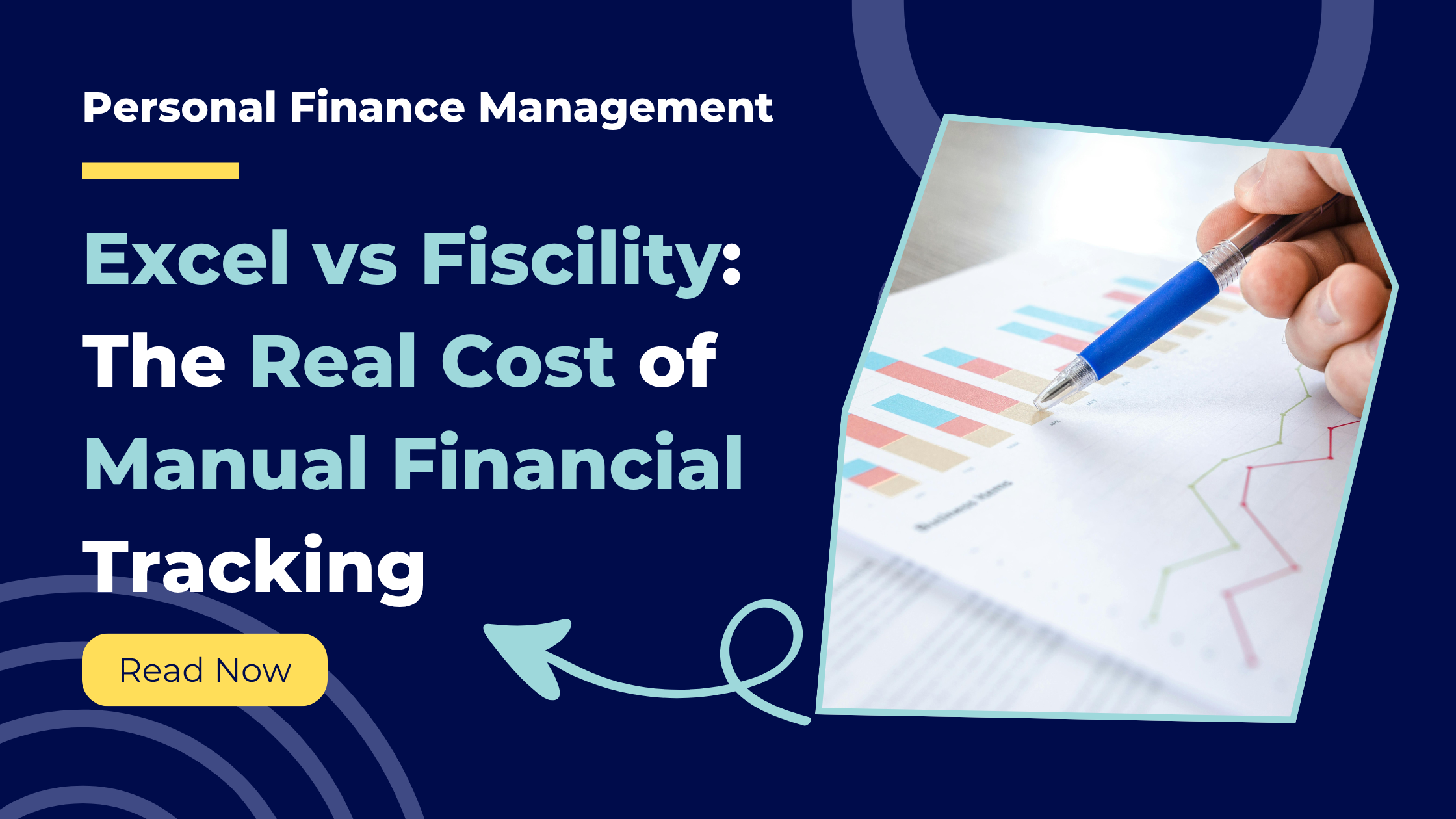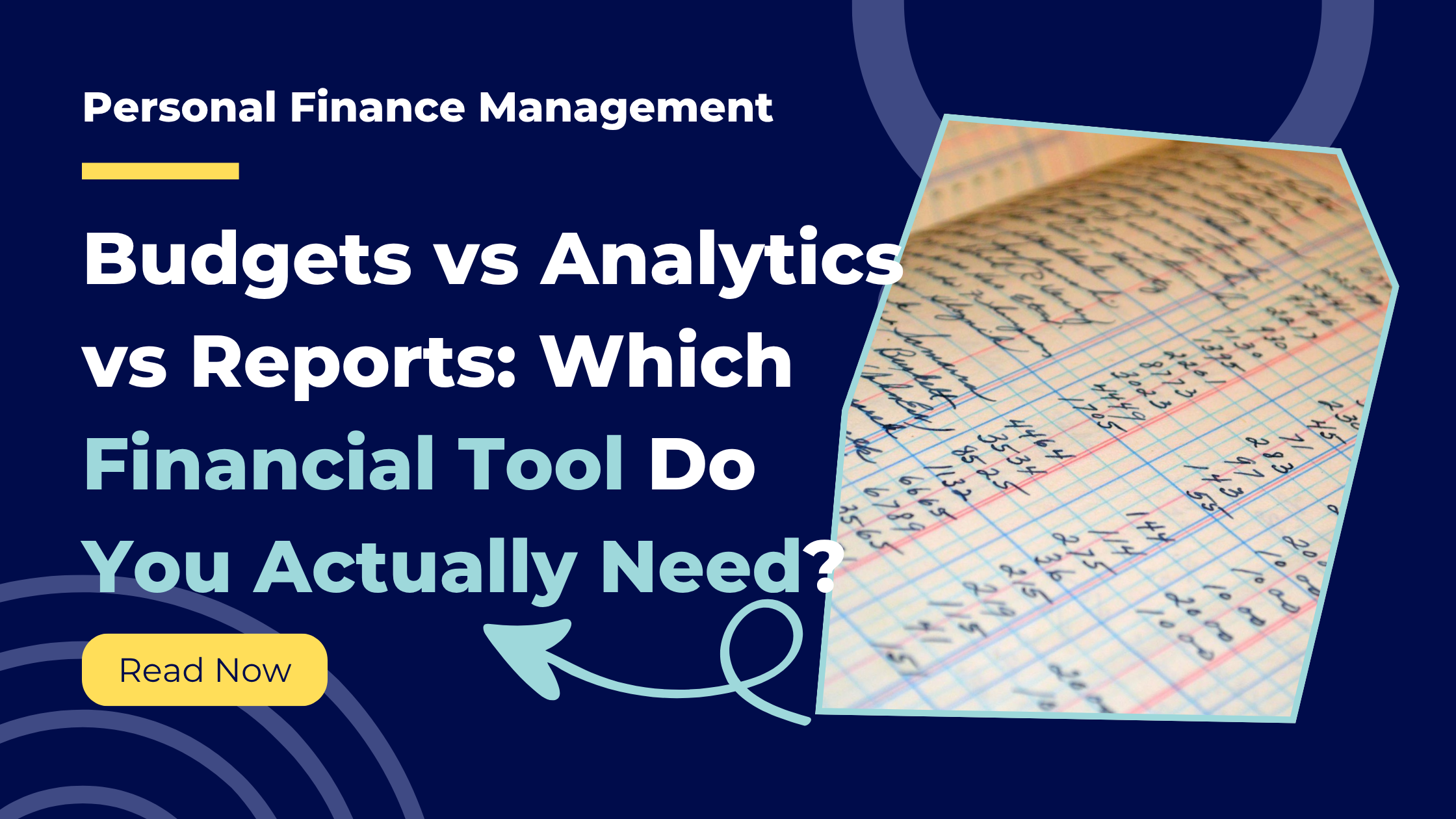
•
1 min read
Why Most People Feel Broke Even When They're Not (And How to Fix It)
Explore the psychology behind feeling broke despite having money, and discover how financial visibility transforms perception into confidence.
You have £2,400 in your current account. Rent is £950. Bills are coming. But you have no idea if £2,400 is enough, too much, or dangerously low. So you feel broke.
Your colleague earns the same salary, has the same expenses, same account balance. She feels completely fine. Not because she has more money. She feels fine because she knows her numbers.
According to research from the Money and Pensions Service, 22 million people in the UK do not feel confident managing their money. The issue is not income. Half earn above the median wage. The issue is not spending. Many have healthy savings. The issue is perception.
Feeling broke is primarily a visibility problem, not a money problem. When you lack clarity about what your money means, your brain defaults to anxiety. The solution is not earning more. It is seeing more clearly.
The Four Illusions That Make You Feel Broke
Illusion 1: Confusing Balance with Availability
You see £2,400 in your account and think "I have £2,400 to spend." False. You have £2,400 minus upcoming obligations. If obligations total £1,600, you actually have £800 available. When you spend based on the full balance instead of true availability, reality catches up fast. That is when you feel broke.
Illusion 2: Forgetting Irregular Expenses Exist
Your brain remembers monthly patterns. Rent. Salary. But it forgets irregular expenses until they arrive. Car insurance in four months. Dentist in six weeks. Friend's birthday next month. When these hit, they feel like emergencies. You feel blindsided. The broke feeling is not about insufficient income. It is about irregular expense amnesia.
Illusion 3: Comparing Yourself to an Imaginary Baseline
You earn £45,000. Objectively comfortable. But if your unconscious baseline is "£60,000 is normal," you feel behind. Social media curates financial success. Your baseline becomes untethered from reality. When your internal baseline exceeds your actual resources, you feel broke regardless of the numbers.
Illusion 4: Mistaking Cashflow Timing for Shortage
Money is temporal. If your income arrives on the 28th and major expenses leave on the 1st, you experience a mid-month cashflow trough. You look at your balance. It is low. You feel broke. But you are not broke. You are in a temporary timing mismatch that happens every month. Without visibility into timing, you cannot distinguish between genuine shortage and temporary trough.
Why Traditional Solutions Fail
Budgeting does not solve visibility. Budgets tell you what you planned to spend, not whether you can afford something today. You might be under budget, but if you have £200 left and £600 in bills due tomorrow, you still feel broke.
Checking your balance does not create context. You see £1,840. What does this mean? Is it enough? For what? Until when? A balance without context creates more anxiety, not less. This is why people check compulsively. They seek reassurance. They get a number. The number provides no reassurance.
Saving more does not fix uncertainty. You can have £10,000 in savings and still feel broke. Why? Because you do not know if £10,000 is enough, how long it will last, or what happens if something goes wrong. Without context, even substantial savings fail to create emotional security.
What Actually Fixes the Broke Feeling: Visibility
The solution is not more money. It is more visibility into what the money you have actually means.
When you know you have £2,400 in your account, £1,600 in obligations coming, and therefore £800 available, the number becomes meaningful. You are no longer guessing. You know.
The three layers of visibility that eliminate the broke feeling:
Layer 1: Current Position - Total balances across all accounts. Consolidated. Complete picture.
Layer 2: Upcoming Obligations - Recurring bills, direct debits, irregular expenses. Everything scheduled. No surprises.
Layer 3: Available Capacity - Balance minus obligations. True discretionary capacity. What you can safely spend.
When you have all three layers, the broke feeling evaporates. Not because you have more money. Because you know what the money you have means.
Why Routine Reporting Sustains Confidence
One-time visibility becomes outdated quickly. Your financial situation changes constantly. What was true Monday differs by Friday.
Routine reporting delivers visibility consistently. Daily or weekly reports show your current position, upcoming obligations, and available capacity automatically. When reports arrive predictably, your brain learns to trust them. You stop wondering. You stop checking compulsively. You know the report will arrive.
This predictability creates emotional regulation. Over time, you stop feeling broke because you stop operating in uncertainty. You move from "I think I have enough" to "I know I have enough" or "I know I need to adjust spending." Either way, you know.
How Fiscility Creates the Visibility That Eliminates the Broke Feeling
How Fiscility Creates the Visibility That Eliminates the Broke Feeling
Fiscility connects all your accounts via secure open banking. Current accounts, savings, credit cards. One consolidated view. This provides Layer 1 visibility: complete current position.
The platform identifies recurring expenses and upcoming obligations. You see what is coming in the next week or month. No surprises. This provides Layer 2 visibility: upcoming obligations.
Fiscility shows your discretionary spending capacity. Balance minus obligations equals what you can safely spend. Simple. Clear. Actionable. This provides Layer 3 visibility: available capacity.
Daily and weekly reports deliver this information automatically. You receive visibility without effort. The routine creates emotional regulation. You stop checking compulsively. You trust the report will arrive.
Historical data shows your financial patterns over time. Average income. Average spending. Trends. You see your actual progress instead of measuring against imaginary standards.
Key Takeaways
The feeling of being broke has little to do with how much money you actually have. It is a visibility problem, not a money problem.
Four illusions create the broke feeling: confusing balance with availability, forgetting irregular expenses, comparing to imaginary baselines, and mistaking cashflow timing for shortage.
Traditional solutions like budgeting, checking balances, and saving more fail because they do not address the core issue: lack of contextual visibility.
The solution is three-layer visibility: current position, upcoming obligations, and available capacity. When you have all three, the broke feeling disappears.
Routine reporting sustains visibility over time. Automated reports eliminate the discipline requirement and create emotional regulation through predictability.
Fiscility delivers all three layers automatically through consolidated views, obligation tracking, capacity calculation, and scheduled reporting.
Stop Feeling Broke When You're Not
You might not be broke. You might just be operating without visibility.
The difference between feeling broke and feeling confident is not how much money you have. It is how much you know about the money you have.
Fiscility provides that knowledge automatically, transforming uncertainty into confidence through routine visibility.
Try Fiscility free for 7 days and discover what happens when you finally see your complete financial picture: Start Your Free Trial
Summary
Millions of people feel broke despite having adequate funds. The feeling is real, but the cause is not lack of money. It is lack of visibility.
Four psychological illusions create the broke feeling: mistaking balance for availability, forgetting irregular expenses, comparing to imaginary standards, and confusing cashflow timing with shortage.
The solution is contextual visibility across three layers: where you stand now, what is coming next, and what you can safely spend. Traditional tools like budgets and balance checks fail to provide this context.
Routine automated reporting sustains visibility over time, creating the emotional confidence that eliminates the broke feeling.
That is what Fiscility was built to deliver.
Found this helpful? Share it with others!
Ready to take control of your finances?
Join Fiscility today and start your financial journey.
Apply for a Membership

